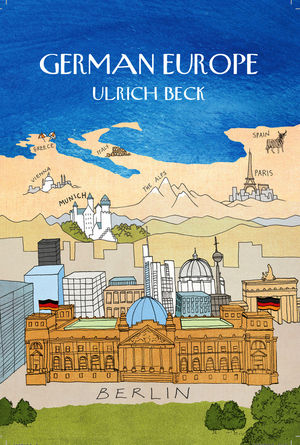German Europe
How did this happen? The anticipation of the European catastrophe has already fundamentally changed the European landscape of power. It is giving birth to a political monster: a German Europe.
Germany did not seek this leadership position - rather, it is a perfect illustration of the law of unintended consequences. The invention and implementation of the euro was the price demanded by France in order to pin Germany down to a European Monetary Union in the context of German unification. It was a quid pro quo for binding a united Germany into a more integrated Europe in which France would continue to play the leading role. But the precise opposite has happened. Economically the euro turned out to be very good for Germany, and with the euro crisis Chancellor Angela Merkel became the informal Queen of Europe.
The new grammar of power reflects the difference between creditor and debtor countries; it is not a military but an economic logic. Its ideological foundation is ‘German euro nationalism’ - that is, an extended European version of the Deutschmark nationalism that underpinned German identity after the Second World War. In this way the German model of stability is being surreptitiously elevated into the guiding idea for Europe.
The Europe we have now will not be able to survive in the risk-laden storms of the globalized world. The EU has to be more than a grim marriage sustained by the fear of the chaos that would be caused by its breakdown. It has to be built on something more positive: a vision of rebuilding Europe bottom-up, creating a Europe of the citizen. There is no better way to reinvigorate Europe than through the coming together of ordinary Europeans acting on their own behalf.
Ulrich Beck is one of the world’s leading sociologists and social thinkers, well-known for his best-selling book Risk Society. He is Emeritus Professor at Munich, London and Paris.
Preface
Introduction. Europe: To Be or Not to Be: The decision facing Germany.
I How the euro crisis is both tearing Europe apart and uniting it
1. How German austerity policies are dividing Europe - the governments are for it, the peoples are
against
2. The achievements of the European Union
3. The blindness of economics
4. European domestic politics: the national concept
of politics is outmoded
5. The EU crisis is not a debt crisis
II Europe’s new power coordinates: the path to a German Europe
1. Europe under threat and the crisis of politics
2. The new landscape of European power
3. ‘Merkiavelli’: hesitation as a means of coercion
III A social contract for Europe
1. More freedom through more Europe
2. More social security through more Europe
3. More democracy through more Europe
4. The question of power: who will enforce the social contract?
5. A European spring?
Notes
| Erscheint lt. Verlag | 5.9.2014 |
|---|---|
| Übersetzer | Rodney Livingstone |
| Verlagsort | Oxford |
| Sprache | englisch |
| Maße | 137 x 216 mm |
| Gewicht | 154 g |
| Themenwelt | Sozialwissenschaften ► Politik / Verwaltung ► Europäische / Internationale Politik |
| Wirtschaft ► Volkswirtschaftslehre ► Finanzwissenschaft | |
| ISBN-10 | 0-7456-6540-3 / 0745665403 |
| ISBN-13 | 978-0-7456-6540-5 / 9780745665405 |
| Zustand | Neuware |
| Informationen gemäß Produktsicherheitsverordnung (GPSR) | |
| Haben Sie eine Frage zum Produkt? |
aus dem Bereich




